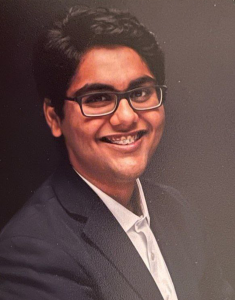
The Democratic Republic of Congo (DRC) has endured years of ongoing violence and unrest (AMNESTY). Various militias have been established in an attempt to protect populations after decades of instability (AMNESTY). Current developments, however, indicate that clashes between a terrorist group known as M23 and the Congolese Armed Forces (FARDC) have escalated massively (AMNESTY), with M23 extending its control over parts of North Kivu and capturing Goma, the provincial capital, in January (SECURITY COUNCIL REPORT).
M23 was formed from the Rwandan Patriotic Front (RPF) rebel-dominated National Congress for the Defence of the People (CNDP) led by Laurent Nkunda (ACLED). The CNDP defended Congolese Tutsi and had received support from the government of Rwanda (ACLED). However, following unsuccessful peace negotiations between the government of Congo and the CNDP in March 2009, the organization was rebranded as Mouvement du 23 Mars (M23).
Their first recorded confrontation was due to interference with Radiophone militants’ integration (ACLED). In 2012, M23 rebels overran Nord Kivu province (ACLED). The group occupied Goma temporarily before they were forced into Uganda, where M23 commander Sultani Makenga and his forces surrendered (ACLED). Though the group worsened in the subsequent years, it reappeared in 2021 and sent a wave of violent confrontations (ACLED).
Presently, M23 rebels have been accused of kidnapping several patients from CBCA Ndosho Hospital and Heal Africa (AA). The United States ambassador to the Democratic Republic of Congo publicly condemned the militia group for its blatant disrespect of peace (AA). The abductions were justified by M23, claiming that the individuals involved were Congolese soldiers in disguise (EURO NEWS). The faction continues to insist that its fight is for the protection of Rwandan-origin Congolese and Tutsi communities from discrimination (EURO NEWS). Furthermore, some principal towns and strongholds have fallen into the hands of M23 (THE EAST AFRICAN). As a counterattack, the DRC has imposed an entry charge on any commodity imported from areas controlled by M23 (THE EAST AFRICAN).
Even as M23 grows, the DRC will not sit down with the rebel movement. They, instead, ask to negotiate with Rwanda, which has been accused of backing M23 (BBC). The conflict in eastern DRC has become a complex regional problem, with external actors being a key force in its escalation (AFRICA CENTER). Rwanda has continuously denied accusations of support for M23 through the military, in spite of mounting evidence brought forward by international organizations (AFRICA CENTER). The presence of over 130 armed groups within the region, including the Allied Democratic Forces (ADF) and Mai-Mai militias, further complicates any possibility of agreement (AFRICA CENTER).
The Congolese government continues to depend on the Armed Forces of the Democratic Republic of the Congo (FARDC), an institution that has experienced longstanding internal divisions and has been the subject of human rights abuse allegations (SECURITY COUNCIL REPORT). Without a clearly defined regional approach that includes diplomatic engagement with external stakeholders and targeted reforms in governance within the DRC, the risk increases that the conflict involving M23 could persist and intensify over time (AFRICA CENTER)
References
ACLED: https://acleddata.com/2023/03/23/actor-profile-m23-drc/
AFRICA CENTER: https://africacenter.org/spotlight/drc-conflict-new-phase/
BBC: https://www.bbc.com/news/articles/cnvz5g420mdo
SECURITY COUNCIL REPORT: https://www.securitycouncilreport.org/monthly-forecast/2025-03/democratic-republic-of-the-congo-29.php
THE EAST AFRICAN: https://www.theeastafrican.co.ke/tea/business-tech/drc-now-imposes-entry-tax-on-goods-from-m23-strongholds–4951984